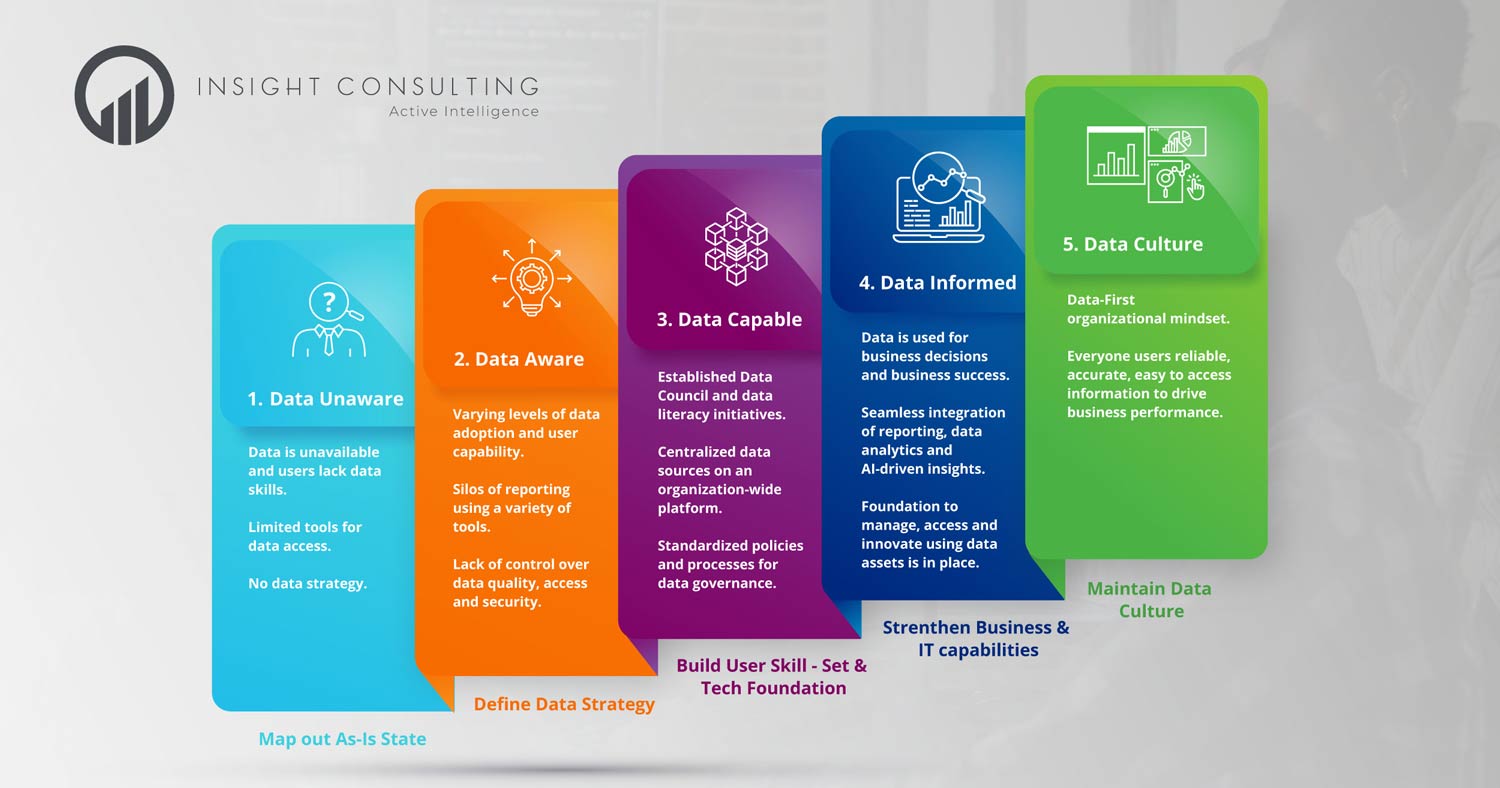 In today’s data-driven world, organisations need to treat data as a strategic asset. Insight Consulting has worked with a large variety of organisations for more than a decade, and our experience has shown that successful businesses treat data as a strategic asset, underpinned by a strong data culture that grows, mines and closely manages this asset.
In today’s data-driven world, organisations need to treat data as a strategic asset. Insight Consulting has worked with a large variety of organisations for more than a decade, and our experience has shown that successful businesses treat data as a strategic asset, underpinned by a strong data culture that grows, mines and closely manages this asset.
In 2023 and beyond, any business that does not appreciate this is not only missing out on a golden opportunity to leapfrog their competition but also runs the risk of being left behind, as more forward-looking competitors begin to place greater emphasis on the importance of managing data across the data value chain.
Data integrates into every dimension of a business’s operations and its employees, meaning it is fundamental to corporate thinking and objectives. A strong data culture democratises data access, calibrates quality decision making faster, breeds collaboration, and fosters data literacy, all the while maintaining the right balance of control – which is fostered through robust data governance.
The challenging task of creating a compelling data culture to manage data as a strategic asset requires a deliberate approach, which needs to take all stakeholders into account and must be driven by a deep understanding of each stakeholder’s needs and touch points in the data value chain.
While understanding that data culture, which includes how data is captured, seen, used and managed, underpins the efficiency of an organisation’s data value chain, how should a business go about implementing a data culture to optimise its data value chain?
Crucial to the successful development of a strong data culture is sponsorship by C-suite executives and support from senior leadership. There must be a top-down approach, where it is designed by and for the business users, and enabled through data teams and IT. The initiative should be championed by a data council made up of business and IT people responsible for continuously driving the data culture in the organisation.
Pervasive data culture
The first step to creating a pervasive data culture is to assess a business’s current data maturity level. This requires organisations to accurately map out their data inventory and understand their current state in totality. This means describing the current architecture and tools, mapping data inputs, outputs, interfaces and flows and the current level of data and user skills within the organisation; and identifying the strengths and weaknesses of their current state.
The next step is to determine the “to-be” state. What are the business objectives, and how do they see their data architecture supporting this in the ideal world. Some of the many questions to be asked are: what data is required, where does it reside, what integrations are required, how will the data be used, will it be commercialised or for internal use only, will there be machine learning and AI applications, what skills are required to support the data architecture, and what level of upskilling needs to be done with user community in order to allow them to use the data effectively?
Contact Insight Consulting for more information
While the temptation is to look to technology at this early stage, businesses first need to conduct a gap analysis between their “as-is” state and their “to-be “scenario before considering technology recommendations to close that gap. The gap analysis in effect sets out the requirements for the implementation of the data culture – defining, among other things, the desired technology features, data governance procedures and organisational data literacy initiatives.
Once the requirements are defined, the business has a road map (data strategy) for their data journey, which will allow them to break down each gap into manageable tasks encompassing technology selection and implementation, data project prioritisations, and business and technical upskilling.
 Ultimately, implementing a comprehensive and pervasive data culture will allow businesses to stay ahead of their competition, mitigate risk and drive the bottom line through enhanced and accurate decision-making and operational efficiency.
Ultimately, implementing a comprehensive and pervasive data culture will allow businesses to stay ahead of their competition, mitigate risk and drive the bottom line through enhanced and accurate decision-making and operational efficiency.
At Insight Consulting, our data professionals have a proven track record collaborating with a multitude of organisations throughout their data journeys as they progress along the data maturity curve. We take pride in our ability to listen to our customers, understand their unique strengths and challenges, and use best practice frameworks to ensure that we deliver collaborative data culture strategies that are best suited to our customers’ needs.
Embrace data as your strategic asset. Contact Insight Consulting for more information on how to build a pervasive data culture to support all aspects of your data value chain.
- Read more articles by Insight Consulting on TechCentral
- This promoted content was paid for by the party concerned




